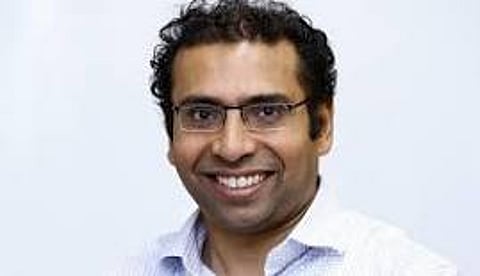

India's once-dependable path to the middle class—stable, salaried employment—is quickly becoming obsolete, warns well-know stock market expert and author, Saurabh Mukherjea, who is the founder and CIO of Marcellus Investment Managers. In a recent podcast titled Beyond the Paycheck: India’s Entrepreneurial Rebirth, the market veteran didn’t mince words: “The age of the salaryman is over.”
Mukherjea believes that traditional white-collar roles—long considered the backbone of Indian middle-class aspirations—are now under serious threat from automation and AI. Citing examples like Google, where a third of all coding is already handled by artificial intelligence, he said similar disruptions are coming fast for Indian sectors like IT, media, and finance.
Mid-level managers and supervisory roles are also feeling the squeeze. “The old model where our parents worked 30 years for one organisation is dying,” he said. “The job construct that built India's middle class is no longer sustainable.”
But rather than painting a picture of doom, Mukherjea sees this as a moment of opportunity. The JAM trinity—Jandhan, Aadhaar, and Mobile—has, in his view, laid the groundwork for a new wave of grassroots entrepreneurship. By giving millions access to identity, banking, and digital connectivity, JAM has quietly removed many of the barriers to entry for aspiring entrepreneurs from lower-income backgrounds.
“If we apply the same intellect and grit that we poured into corporate careers, entrepreneurship can be the new engine of prosperity,” he said.
Mukherjea also took aim at what he sees as India’s outdated obsession with job security and paychecks. “We’re a money-obsessed society. We define success by salaries. That has to change,” he said. “We should be solving for happiness and impact—not just monthly income.”
He believes India has the tools and talent to create thousands of small-scale entrepreneurs, but a cultural shift is essential. Families must stop preparing kids to be job-seekers--the jobs won’t be there, he said.
With AI rewriting the rules of employment and the government quietly enabling a digital ecosystem, Mukherjea’s message is clear: it’s time to rethink what success looks like in the new India.